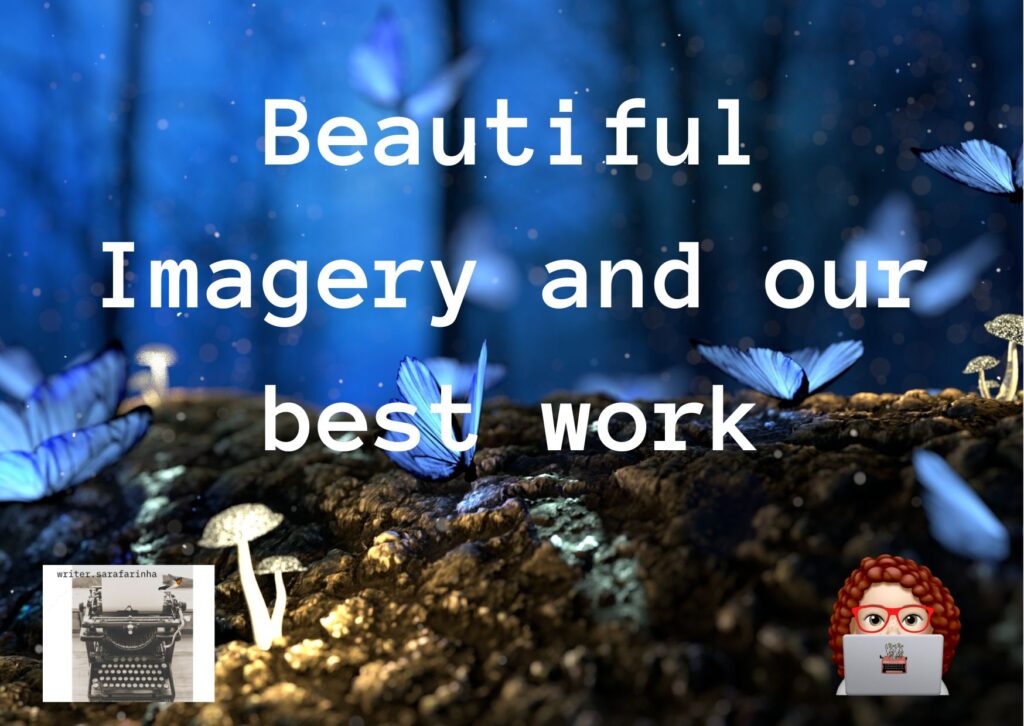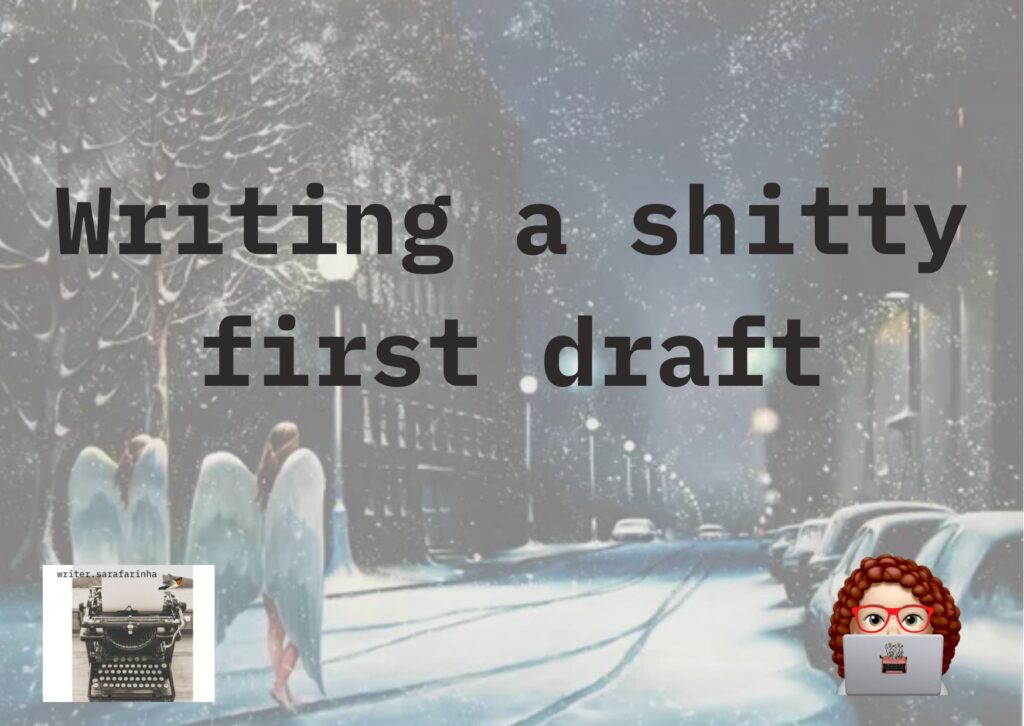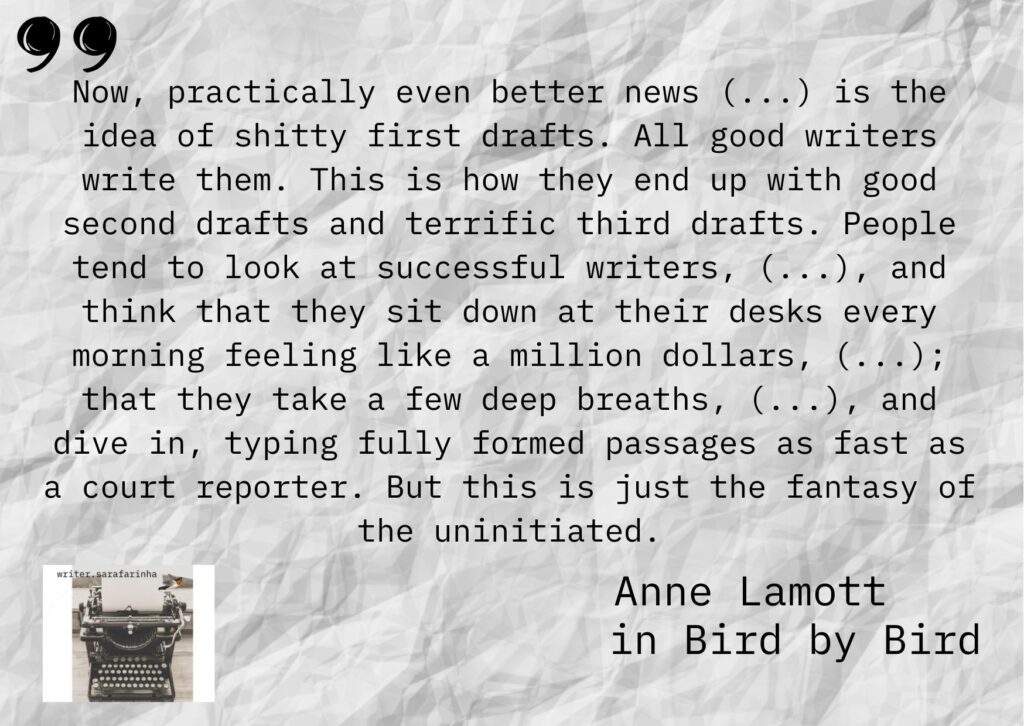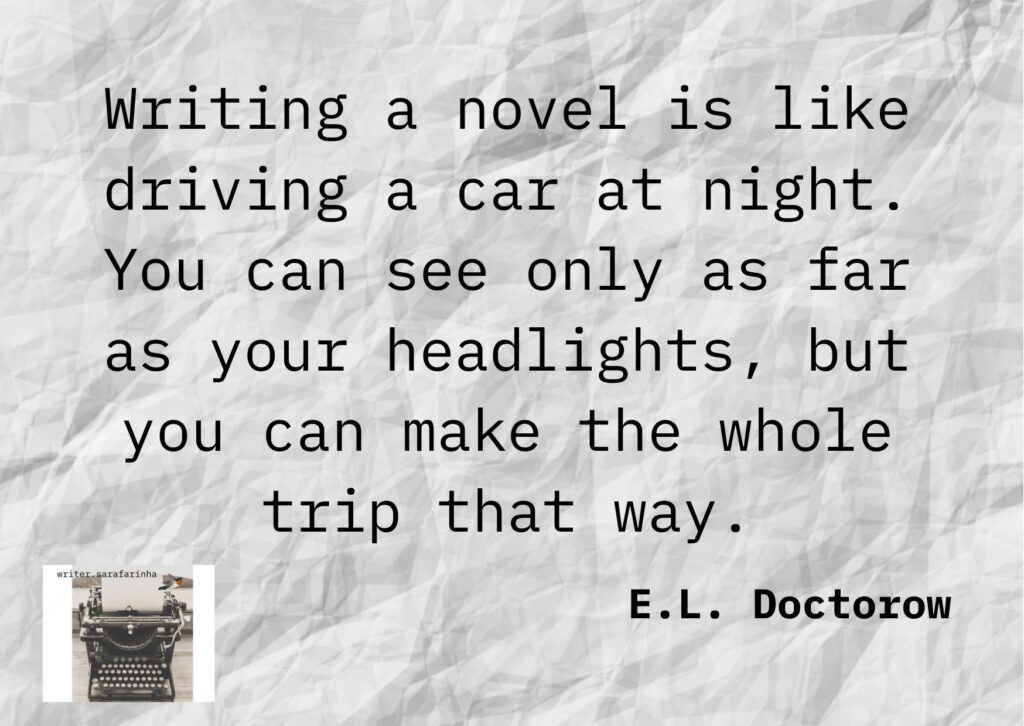
Hello all! Welcome back to this blog.
Imagination and Imagery are intimately connected. It’s the power of combining images, transforming them into our particular reality, and even going beyond that.
Writing is constructing images in our heads and in our readers minds.
While building a story we recur to different strategies to visualise how characters, locations, and objects, will appear to our readers.
I do believe that, all that we can see in our minds will translate into a page in the most effective way we can imagine, if we just put the work behind it.
I also believe that usually this happens in ways we can’t perceive objectively. It’s kind of a shadow work that occurs inside our minds, fuelled by all the collected inspirations.
The act of describing what we are envisioning, letting what we absorb come through, will make reading a lively experience.
This means building ideas about how the elements will be, and master its materialisation on the page. Whatever the story, in whichever genre we fancy.
How we find imaginative inspiration?
Some of us, writers and imagery builders of sorts, have a fondness for reading and imagine things in our own way.
Sometimes, this ability gets us to have a book turned into a movie just because the imagery used was totally wrong from what we had envisioned.
Others, find it useful to look at correlated art works and give our imagination a hand at picturing worlds, creatures and even human faces.
There are a few theories about this brain ability of ours, categorising people into types of learners, just by figuring out our abilities to retain information and, therefore, use it in creative ways, accordingly to our main senses of vision, hearing and touching.
I found that, for me a mix and match of all of these, work in different projects and situations. So I learned to use visual aids, and well as hearing and touching.
In some projects I use music. In others, drawings and pictures. With more, or less, emphasis on each aid, according to what I feel is most needed for me to capture the full experience I need.
Because to learn about these characters, and this world, and these objects and locations, I need to attune myself to their particularities. And this is only possible if I keep my sources of inspiration in an expanded mode. Always looking, always alert, always integrating fun little snippets of information that might seem to be just there for the taking. Just so I have some places from which to draw inspiration from.
Where do I find some inspirational imagery?
Just looking at other people’s rendition of something, a picture, a drawing, a digital art work, a description, a capture of some sort of inspirational material, allows me to let me own imagination guide me into my own world building, with all it entails. Browsing through Pinterest, DeviantArt, a Google search on Images tab, can get me some much needed help on figuring out some writerly things.
How do I use it in my writing process?
I use it for inspiration, to build up my mental muscles on the much needed imagery.
Exposing myself to beautifully composed images, to gruesome battle outcomes, to twirls of abstract imagination, will get me content enough to start thinking about my own creative processes in my stories.
Also, I use it for writing exercises.
To have a prompt, and to build upon that little morsel of imagery is a pleasure, and alleviates me from having to start with the dreaded blank page feeling.
Just like painting uses references, the writing practice also can, and should, do it. Imagery serves us as guides in this unthreaded wordy land.
Is it beneficial to my writings?
Yes. It is indeed. My imagination needs all the aid she can get. My writing efforts benefit from everything I throw at them. All the little unsuspected efforts we can make to help us write more and better are welcome.
If we find a notebook full of clippings is the way to go, we should try it out; or a mood board hanging on the wall; a Pinterest album full of scary pictures; a reference book on imagery; a subscription to a travel magazine; or any other way of collect those images we will be recurring to intentionally, in order to make our writing process smoother and more inspired.
Standing in the shoulders of giants has its downside?
Do not copy. Do not steal. Do not use without permission. Do not go into that unimaginative, hurtful, dishonourable lane.
Reconnect the dots of all you have learned and add to the work already done. Be inventive, resourceful, creative in your own right. You can do the most beautiful, your own, work. And it will feel good to do so.
Be careful of the difference between gathering inspiration, to work out added value, and the already mentioned problem above.
Gather from all types of different sources and think: I am the sieve through which all comes in, and only a small combined part of it mesh and comes out.
Allow myself to be the changing factor, the added value, the combinatory and creative force behind whatever I create.
Will it be easy?
Is anything worthwhile easy? I don’t think so.
Was any of those drawings easy to make? Any of those books we read? Any of those creative breakthroughs?
Easy and Worthwhile are opposites, aren’t they?
Having these processes available to tap into, allowing new inspiring imagery and information to come through, working out the effective ways they can serve my writing efforts, trying to be receptive to all inspiring tendrils is part of the fun.
All we can do is allow our minds to translate into our work the images we had envisioned. All we must do is ensure that the reading experience will be the best we can make it. And that all these inspirational processes work out for the best in each page we write.
So that our reader truly gets what we were aiming for: the best story possible.
Please leave a comment and subscribe for more content.
Bye and Keep writing! ✍🏼
***
References:


